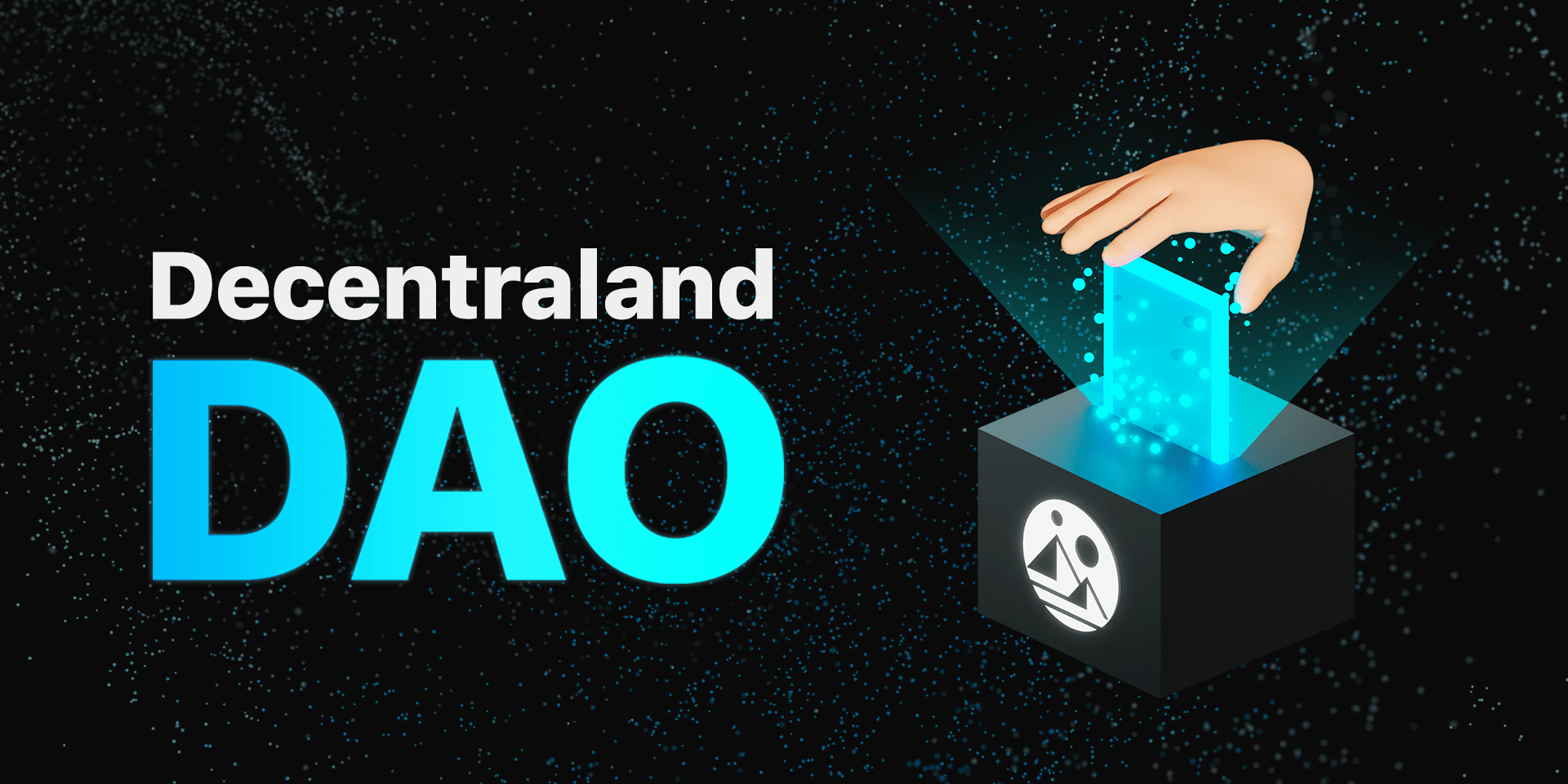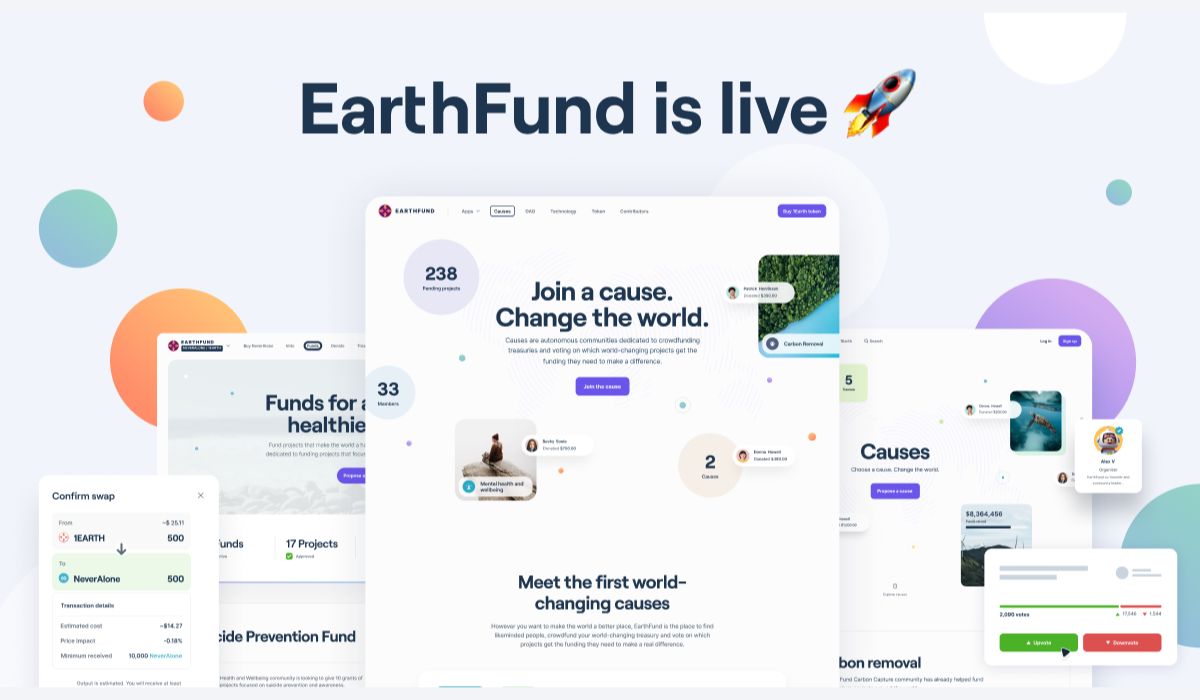Decentralized Autonomous Organizations -or DAOs for short-, are a type of organization that is controlled entirely by computational algorithms, or smart contracts, that have emerged from the crypto ecosystem with various objectives and/projects. Thus, DAOs are based on the fundamental principle of decentralization, which is one of the key characteristics of any crypto project.
In this way, DAOs represent a powerful technological innovation that seeks to redefine the way projects, companies, organizations, contracts and ideas.
These are the 4 reasons why DAOs can change the world:
1- They promote real democracy
There has been some criticism of DAOs because of the way the vote weighting system works. Detractors claim that there is the potential for abuse by “whales” who accumulate a large number of tokens to gain disproportionate voting power and make decisions that go against the majority opinion. This is a logical view, but recent events suggest that these fears may be overblown.
A good example is the healthy debate following Decentraland DAO’s recent proposal to allocate $1 million in MANA tokens from its treasury as incentives for Decentral Games’ USDC-ICE liquidity fund.

Decentral Games is a highly influential gaming platform within the Decentraland metaverse with over 60% of its weekly active users. The proposal sought the $1 million grant to sustain the value of the ICE Poker platform’s native token prior to the launch of its highly anticipated sit-and-go tournament format.
As one of the largest grants ever proposed to the Decentraland DAO, the vote was closely watched as an example of DAO governance in practice. There was a great deal of debate on the matter, with many users arguing both for and against the proposal. In the end, it passed by a fairly narrow majority, with 56% voting in favor and 44% against.
The result reinforces the argument that DAOs do indeed result in democratic decision making. A total of 6,162,990 voting points allocated by 151 individual voters supported the proposal, compared to 4,952,747 voting points from 40 voters who were against. Clearly, although some whales wanted to reject the proposal, the overwhelming consensus of the Decentraland community was enough to win the day.
2-Freedom to perform satisfactory work
Some argue that the benefits of DAOs go beyond simple democratic decision-making. Because DAO processes are automated, they free employees to spend their time on higher-value activities rather than mundane tasks.
This is important, because a recent Gallup study shows that up to 85% of today’s global workforce is disengaged at work. The opposite is true in DAOs, whose members are by nature highly committed to achieving shared community goals. In DAOs, members have much more freedom to devote their energies to the projects that really matter to them.
This idea was recently exemplified by a new DAO called EarthFund, which just announced the launch of its “DAO-as-a-Service” platform to facilitate fundraising for charity and other good causes. EarthFund is a DAO community that also acts as an umbrella organization for other DAOs, or sub-DAOs, that exist to raise money for good causes, with the ultimate goal of building a better world for all.

“The success of DAOs in raising money for good causes has received a lot of attention in the past, with cases such as UkraineDAO, which raised millions to help people affected by the war in Ukraine, and ConstitutionDAO, which also made headlines for its advocacy.“
With the launch of EarthFund’s DAO-as-a-Service platform, it has suddenly become much easier for anyone to launch a DAO to raise funds for issues of global concern. Previously, creating a DAO has always required the help of developers skilled in the Solidity smart contract programming language. Since Solidity developers are few and far between, this made it difficult for many individuals and organizations to get started.
EarthFund’s platform, therefore, makes the world of DAOs much more open, giving anyone the ability to easily create a democratic movement of like-minded people. All they have to do then is start focusing their energies and creativity on ways to raise funds and change the world.
3- They are a new way to invest
DAOs also offer some unique opportunities for emerging projects and the communities that support them. One of the hardest things for any new cryptocurrency project is raising money to get their ideas off the ground. Traditional funding sources can be very picky about the projects they back.
This has led to the rise of so-called “launchpads,” which are DAOs looking to raise money from their communities to fund what they believe could become the next big thing in the cryptocurrency world.
What’s more, they are incredibly efficient in this regard and function like a traditional incubator in every sense of the word: helping project founders connect with VCs to raise additional funding, exchanges to launch their tokens, influencers to get the word out, and legal counsel to help create a proper infrastructure and business model.
In addition, to encourage people to participate, incentives are also often offered to the community, including rewards, cultivation and referral programs. In this way, members who help new projects grow and prosper can earn additional rewards.
4- More equitable distribution of wealth

Perhaps the best example of the potential of DAOs is their ability to act as a vehicle for wealth distribution.
The “UBI” -Universal Basic Income- is a utopian idea that was first proposed by the social philosopher Thomas More in the 16th century. The goal of Universal Basic Income is to provide everyone with a steady source of income, regardless of status, wealth or ability to work.
Although several countries have experimented with the idea of UBI, these initiatives have not been very successful. For example, Canada conducted a randomized control study in 2017, providing a basic income to 4,000 families in Ontario over a three-year period. However, the study was cancelled after a year following claims that the project discouraged those families from seeking work.
More than a few argue that a UBI is necessary to combat income inequality and the rise of automation, which some studies suggest could threaten as many as 800 million jobs over the next ten years. The theory is that everything that can be automated will likely end up being automated, and not everyone will be able to learn other skills to find a new job. Consequently, a UBI will be needed, advocates say.
And the best way to scale the UBI is through a blockchain framework. His vision is to create a world where everyone has access to basic economic assets, and he believes this can be achieved by creating financial products that incentivize wealthier people to create wealth for the good of all.
DAOs are building a brighter future
At the moment, the DAO movement is still in its infancy and remains experimental. Many questions remain about the viability of DAOs in terms of governance and trust issues. However, there are indications that the more organized and democratic DAOs are capable of answering these questions and making progress toward achieving some very valuable goals. From what we have seen so far, there is much to like about DAOs and very little criticism of what they have achieved so far.
“Most important is the basic premise of DAOs, which offer ordinary people a way to get involved in ambitious projects, promising investments and additional causes that can make a real difference in people’s lives.“
For one person acting alone, it may be impossible to change the world. But if that person finds a thousand people who feel the same way and organizes them, the collective power they have is far greater. With that power, the possibilities of community-led development are magnified to such an extent that they know no limits.
“This is the promise of DAOs: to create a future where people come together to do more fulfilling, higher-impact work with a much fairer distribution of ownership and rewards.”
DAOs can pave the way to a utopian future in which everyone has a say while collectively moving forward in building a better world.
